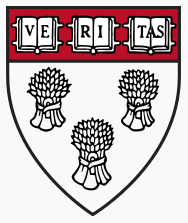CAMBRIDGE, Mass. – A group of Harvard Law School students who dubbed themselves “Royall Must Fall” are one step closer to forcing officials to abandon the school’s nearly 200-year-old seal.
Harvard Law School Dean Martha L. Minow sent an email Wednesday to law school affiliates that she’s appointing a committee to “lead research into, and a community discussion, of whether to continue using the HLS shield,” The Harvard Crimson student newspaper reports.
MORE NEWS: Know These Before Moving From Cyprus To The UK
The move comes after a group of students mounted a campaign in October to change the school’s crest, because it’s also the family crest of Isaac Royall Jr., a slave owner who help found the school in 1817.
“These symbols set the tone for the rest of the school and the fact that we hold up the Harvard crest as something to be proud of when it represents something so ugly is a profound disappointment and should be a source of shame for the whole school,” Alexander J. Clayborne, a law student involved in the “Royall Must Fall” movement said last month, according to EAGnews.
 About two weeks ago the issue of racism at the school resurfaced when someone placed pieces of black tape across the portraits of black law professors in Wasserstein Hall. The incident sparked a police investigation into the “vandalism,” though students condemned it as a “hate crime,” according to the news site.
About two weeks ago the issue of racism at the school resurfaced when someone placed pieces of black tape across the portraits of black law professors in Wasserstein Hall. The incident sparked a police investigation into the “vandalism,” though students condemned it as a “hate crime,” according to the news site.
Second year law student Michael Hall wrote about the tape incident and posted images on the website Blavity.
“This morning at Harvard Law School we woke up to a hate crime,” he wrote.
The taped portraits are “actually one of the most clear-cut, overt instances of very, very vile and disrespectful behavior from somebody,” Hall wrote.
Minow said the hate crime is evidence the school has a “serious problem” with racism.
MORE NEWS: How to prepare for face-to-face classes
Royall Must Fall described the tape ordeal as “an overt act of racial hatred” in a letter published in the Harvard Law Record, and noted the incident likely was in reaction to the group’s work on campus.
Royall Must Fall organizers “had placed several pieces of black tape over several depictions of the school’s seal round campus (the night before), they wrote, alleging that someone had removed those pieces of tape and then placed them on the portraits of black faculty members,” the Crimson reports.
“For a lot of students, particularly students of color, it’s not surprising. It’s just more public,” law student Derecka M. Purnell told the site. “It’s a public manifestation of what we experience in the classroom every day.”
The tape incident, of course, invigorated the Royall Must Fall movement and calls on the school to do away with its seal. Minow outlined several “concrete efforts” the school is taking to become more inclusive in her Wednesday email, which include spending more time during orientation to “tackle sensitive issues openly but with mutual respect” and again referenced the tape incident.
She also named members of the special committee to ponder the continued use of the Royall crest as the school’s shield. Law professor Bruce H. Mann will chair the committee, and will be joined by professors Tomiko Brown-Nagin, Annette Gordan-Reed, Janet E. Halley, and Samuel Moyn, as well as two students and an alumnus, school spokeswoman Michelle Deakin told the Crimson.
Halley said she’s “open to considering all the options” and does not “have a strong feeling about the shield itself.”
“The shield itself is different from the portrait, the (Royall Professor) hair, although those issues may come up,” she told the news site.
Third year law student Rena Karefa-Johnson said the new committee is “a good thing.”
“I think it’s going to continue to be a negotiation and there seems to be at least some level of willingness on the part of the administration to negotiate,” she said.
Interestingly, the Royall Must Fall movement was spawned by visiting professor Daniel Coquillette, who highlighted the family’s ties to slavery, according to a January 2014 editorial for The Harvard Law Record.
And while Coquillette believes Isaac Royall Jr. was a “coward, and brutal slaveholder,” he thinks the school should own his legacy, rather than attempt to whitewash it.
“As a historian … you must deal with the fact that this guy founded the school and tell the truth about it,” he said. “To change things is to act like (they) didn’t happen, and that’s a mistake.”


Join the Discussion
Comments are currently closed.